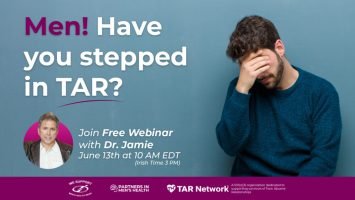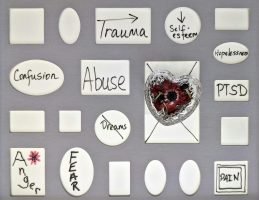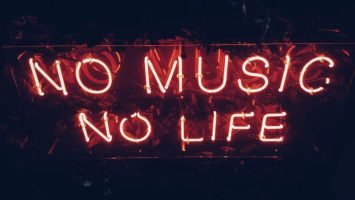By Mila Koljensic
Taylor Swift is well known for discussing mental health topics, intimate relationships, and other personal experiences through her music. Her new album, Midnights, continues to reflect Taylor’s openness and her efforts to destygmatize these important issues.
I became a fan of Taylor largely because of her amazing skill of putting words to emotions, that many of us experience but can’t adequately express. She calls out depression and the sleepless nights it causes, as well as her personal suffering from an an eating disorder.
Specifically, Taylor makes the clearest references to these conditions in “Anti-Hero” and “You’re on Your Own, Kid.” In Anti-Hero, Taylor sings Midnights become my afternoons, when my depression works the graveyard shift, all of the people I’ve ghosted stand there in the room.
In You’re on Your Own, Kid Swift references an eating disorder ― a struggle Swift alluded to dealing with in the Netflix documentary Miss Americana: I gave my blood, sweat and tears for this, I hosted parties and starved my body, like I’d be saved by a perfect kiss, she sings.
My personal struggles.
I can relate to Taylor’s struggle. When I was 21 years old, I also struggled with an eating disorder. I had a severely low BMI. I looked unhealthy and dressed in oversized clothes. This all happened after my mother’s death.
Back then, I really wasn’t listening to what Taylor communicating through her songs. I didn’t hear musicians who could put my struggles into songs, and there seemed to be no popular artists with whom I could relate. My family tried to help, but like many young adults, I considered their help as an attack on my character. I had this feeling that they didn’t understand me at all.
I used to eat the same Greek yogurt and toast every single day. To compensate for the food I ate, I was training on a cardio regimen. I was in a toxic relationship with my first boyfriend. I didn’t respect myself at all. My mother died; I felt lonely and wished to have someone who loved me. It didn’t matter to me if the love was toxic and harmful.
This turned bad for me. The boyfriend had anger issues that spilled out on me, and he cheated on me multiple times. Thankfully, I found the strength to end it, although years later. It’s sad how mental illness and lack of self-love push us into Toxic Abusive Relationships (TAR).
I hadn’t thought about my first mental health struggle until I heard Taylor’s Midnights. It transported me back to the time when I was feeling lost, lonely, and misunderstood. I was also inspired to analyze this problem with one important advantage – separation of years from the problem.
If I could have overcome my eating disorder in a healthy way by speaking to a therapist, committing to therapy, and having open conversations with my family, I might not have exchanged the eating disorder for addiction to alcohol and pills – which was a years-long struggle..
Now in my 30s, I am clean, sober, and aware, I fully appreciate that I am one of the lucky people who pulled through – many didn’t, and aren’t with us here today or are still “lost in the fog.” I am also really glad that today’s youth has a role model in Taylor – someone who isn’t afraid to speak on topics that many of us find uncomfortable.
Benefits of healthy role models.
When artists open themselves up about their real challenges, they are telling their audiences who have their own personal struggles that they aren’t alone. People who are not in the public eye listen to song lyrics and watch videos have someone who empathizes with them and they feel seen. Because a famous person has talked about their issue, they feel like they no longer have to hide. People like Taylor Swift validates them, helps them to feel normal, and tells them it’s okay to get help for your struggles.
It’s okay to talk about our struggles – after all, Taylor is struggling too.
While we still have a long way to go, the stigma surrounding mental health and mental health disorders has dropped drastically in recent years ― and a large part of that is because of public figures who talk openly about their own experiences.
Taylor has never directly shared a particular diagnosis, but she’s still adding to the overall conversation in a meaningful way with her music.
I think people often look at celebrities and the faces they put on publicly and think that means they are amazing and happy all the time. But when you hear about what is actually going on behind the Hollywood smile, it makes you feel even more connected to them, makes them even more real, and helps you relate that much more to them and their music.
Listening to Taylor’s album feels like therapy. A lot of us are up not sleeping and thinking about our past or future and having negative thoughts about ourselves or others, and as Taylor names those experiences, we feel that much more understood and that much less alone. And that’s priceless.
Of course, an album can’t replace regular therapy but listening to these songs can feel pretty damn close to the actualization you may experience in a session, and that in its own way is cathartic. There’s nothing like feeling understood by an artist you admire ― and knowing that maybe they’re right there with you.
It’s her most vulnerable album yet – she’s plainly talking about her mental health, and mine. Maybe yours too.
TAR Network is here to support everyone who has struggled or is struggling with mental health and Toxic Abusive Relationships – providing free resources and support to those in need regardless of gender, sexual orientation, race, nationality, or identity. If you know someone or if you are the person who is struggling, please join our movement and help your inner child heal.







